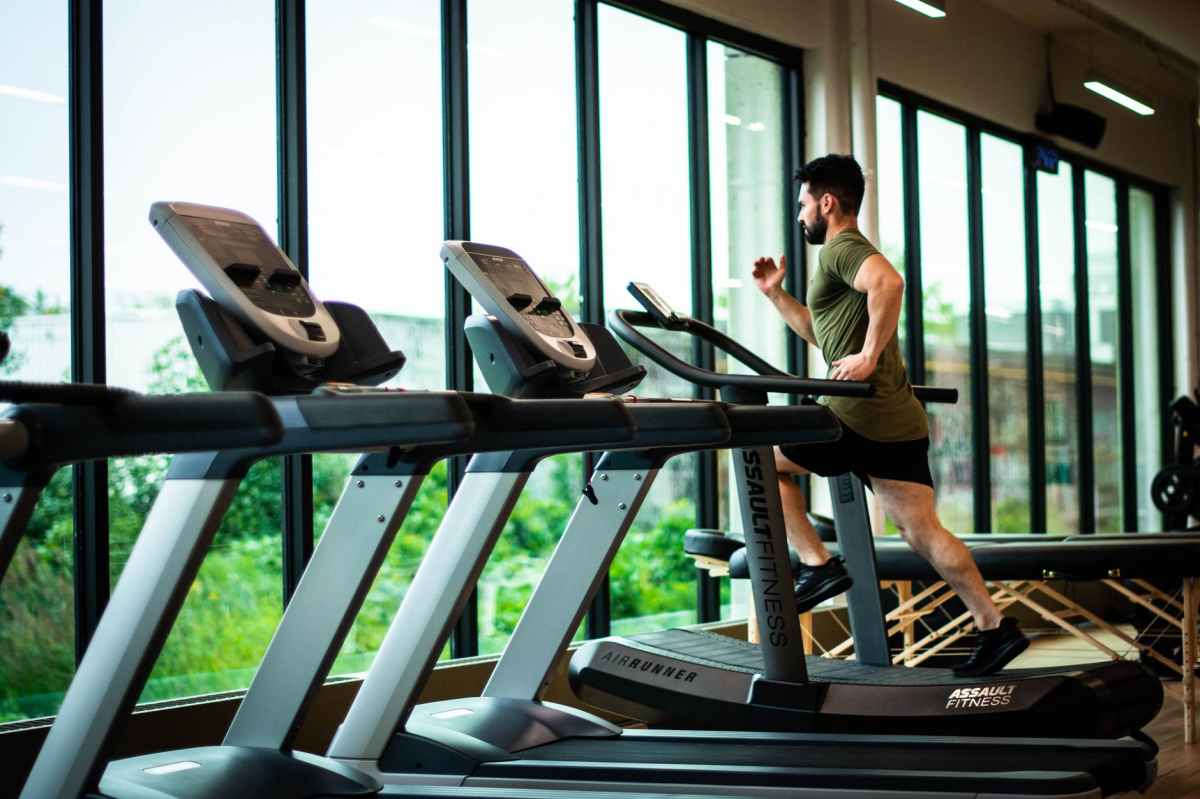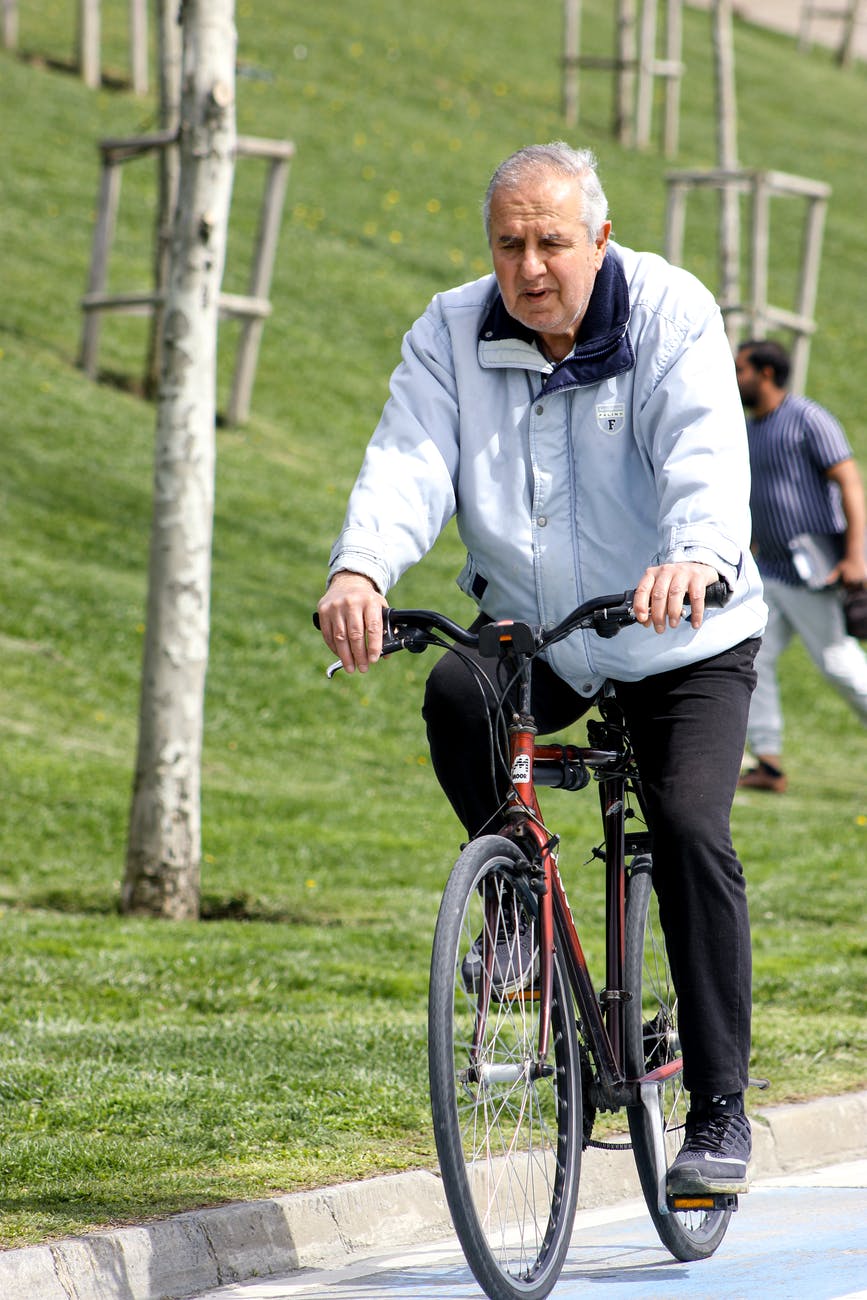Check this book here here. Available for purchase on Amazon.
Tag: fitness
Striving for excellence: A holistic approach to health and well-being
An excellent Christian lifestyle is a holistic approach to ensuring both spiritual growth and maturity, and physical well-being.
The measure of the quality of our lives is dependent on different factors. Today, let’s consider healthy lifestyles. Everyone desires to have a blissful future with good health and success. I am not sure that anyone who is sane will desire a future with a frail body. Even people who are active in sports have health care for emergency purposes. It is very important to strive for a sustainable future with good health. Definitely, only God knows the future but we should not take that for granted and neglect our health. If we refuse to give attention to our health, God knows that we will be operating with weak bodies in the future. We should consider a holistic approach towards our health and well-being. We should be considerate with whatever goes into us. Food does not make us unrighteous (Matthew 15:11) but food can contribute to adverse health problems.
“Suppose one of you wants to build a tower. Won’t you first sit down and estimate the cost to see if you have enough money to complete it? (Luke 14:28)
In order to live a purpose-driven life, we should purposely consider efforts towards a sustainable future of good health. Accidents do happen but we can control the least accidental situation. Eating unhealthy foods is not an accident. Refusing to exercise the body is not an accident. Not having time to invest in your health is not an accident. We have to intentionally strive for healthy lifestyles. It is a cost we have to bear if we want to live a purposeful life. Jesus asked His disciples in Luke 14:28: “Suppose one of you wants to build a tower. Won’t you first sit down and estimate the cost to see if you have enough money to complete it?” Have we counted the cost of attaining a healthy lifestyle? Are we ready to make sacrifices to stop eating unhealthy foods because of the implications they have on the body? Are we committed to glorifying God with healthy lifestyles?
We cannot present what we do not have. You cannot preach that Jesus saves when you need to be saved from the clutches of addiction. Imagine waking up to find the preacher in your church in the news for drunk driving. I am not sure, if he gives a sermon on “Living to please God” you will be pleased. Imagine yourself in the court of God and you need to defend yourself about being a good custodian of your body. What will be your defense? An excellent Christian lifestyle is a holistic approach to ensuring both spiritual growth and maturity, and physical well-being. God wants us to prosper in all we do. He will not do for us what He has entrusted us to do. No amount of grace will cause God to exercise for you. No level of Spirituality will cause you to escape the general needs of the body. If we want to have a fulfilling Christian life, we should be good stewards of our lives.
There is a time to invest in your health and well-being!
We all have 24 hours a day and how we spend it, can have a direct relationship with our future. There is “a time to be born and a time to die, a time to plant and a time to uproot”, but while we are alive, there is also a time to invest in our health and well-being.
We all have 24 hours in a day and how we apportion time for the things that really matter is important. You cannot blame God for giving others more time than you. Whether you live in Africa or Oceania, everyone has access to 24 hours in a day. It is therefore worthwhile to learn to manage our time effectively. This blog post might be of help if you need help with time management. One comment that most of us make daily is “I don’t have time” and this has become part of our daily struggles. I understand the complexities of life, the load of work and the time we spend each day to make sure our families enjoy a good life. We can be lost in all these things and forget to actually take care of ourselves. More specifically, those of us who migrated from developing countries to the West can be consumed in so much work to satisfy our families back home. We tend to forget our existence. We pay huge amounts of money to take care of family members, invest in properties, help friends but hardly make time to even consider our own health and well-being.
There is a time for everything, and a season for every activity under the heavens (Ecclesiastes 3:1)
The preacher states that: “There is a time for everything, and a season for every activity under the heavens” (Ecclesiastes 3:1). This includes a time to invest in your health and well-being. We need to be intentional about this and make a conscious effort to make that investment. What happens if you work so tirelessly to buy the most expensive house but spend the rest of your life confined on a hospital bed? You made time to work yourself out, but you never made time to work on your health. If we daily complain that there is no time to take care of our health, we will miss the opportunity to make sure that we are fit. Remember that there is “a time to weep and a time to laugh, a time to mourn and a time to dance” (Ecclesiastes 3:4). If you fail to have time to take care of your health, friends and family will make time to weep over you when you are no more. In fact, people will take time to attend your memorial service.
When we understand that God has made us custodians of this physical body, we should be mindful to make time to keep fit. You don’t need a gym membership to be fit. There are basic human activities that contribute to good health. Walking, running, skipping, swimming, dancing, cycling etc. are activities that are good for our well-being. We should also consider investing in age-appropriate physical activity. If you have the resources, you can join your local fitness centre, get a treadmill or get yourself any of the computer assisted training programs. There are countless free online resources for health and well-being. Make time to build yourself a good and healthy lifestyle. As we grow older, there are certain lifestyles we should avoid. If you still have a daily hangover at 50 years, you should see a therapist to assist you with alcohol addiction.
Remember that we all have 24 hours a day and how we spend it, can have a direct relationship with our future. There is “a time to be born and a time to die, a time to plant and a time to uproot” (Ecclesiastes 3:2), but while we are alive, there is also a time to invest in our health and well-being.
Physical changes: The new is here!
If we fail to invest into our health and well-being, we plan to spend our future on medications with adverse effects. Be intentional to prioritize your health needs.
Over the weekend, we had a picnic at church and I used the skipping rope for the first time in a few years. It was not a pleasant experience. I felt so tired and jumping back and forth was quite challenging. Skipping was one of the easiest training exercises I could do in the past. Now, my body has gone through changes. Since I had not been using the skipping rope for a long time, my body is yet to adjust to using it. My resolution is to continue exercising with the skipping rope until I get used to it again. Changes in the physical body are inevitable. Growth is the key factor that propels change. When we are younger, our bodies are able to do certain rigorous activities, as we grow older, we cease to be physically strong as we were in the past. The body therefore needs certain types of activities to keep the muscles active.
The old has gone, the new is here! (2 Corinthians 5:17b)
Growing older is a blessing and we need to appreciate God for the grace to live a longer life. However, we should not take for granted that as we grow, we should be intentional about investing in our health and well-being. Growing older is a new state that we have to get used to. We need to be prepared for it and one can never run away from old age. Growing old reminds me of the verse that says: “The old has gone, the new is here!” (2 Corinthians 5:17b). Here, the old refers to our old physical state and the new refers to our current state. We should not lose sight of the changes we go through each day and we should make room for age appropriate physical training. As believers, we should approach our health with the knowledge that God wants us to live life in abundance and this includes being in good health.
When we come to understand this, we will make plans for our well-being. We invest for the future, which is very good. We buy houses, cars, and make sure that when we retire, we will live comfortably. But do we invest into our health and well-being? As we grow, what plans do we have to ensure that we live a good life void of avoidable health complications? It is great to have a reliable life insurance policy but it is also great to have a dedicated plan to keep fit and healthy. While we pay for premiums and monthly deductions for our investments, we should make a conscious effort to make time for our health and well-being. Being aware that the insurance alone cannot give you the quality life you need if all your limbs and muscles are aching. You might spend the rest of your retirement visiting health practitioners instead of living your best life.
If we fail to invest into our health and well-being, we plan to spend our future on medications with adverse effects. Be intentional to prioritize your health needs.
To read more of these, grab my book A HEALTHY LIFESTYLE: YOUR LIVING SACRIFICE here.
Arise and eat
Hunger is not a third world pandemic but a worldwide pandemic. The next time we pour leftover food in the trash can, know that someone else could have survived on that meal.
If you have not experienced real hunger, you may never appreciate food. In fact the biggest global pandemic that has been with humanity longer since the history of mankind is hunger. It is the only pandemic with a cure yet it has taken the world 1000s of years to solve it. If you have not experienced extreme hunger before, you may not understand the gravity of it. Do you remember those scenes on your TV with babies with countable ribs? Have you ever seen footage of people holding empty bowls and going through a stampede just because a van carrying food arrived in their community? It is very heartbreaking to know that hunger is not a third world pandemic but a worldwide pandemic. The next time we pour leftover food in the trash can, know that someone else could have survived on that meal.
And the angel of the Lord came back the second time, and touched him, and said, “Arise and eat, because the journey is too great for you.” (I Kings 19:7)
There cannot be any conversation on healthy lifestyles without stressing on eating appropriately. However if you do not have access to food, a healthy lifestyle is just a delusion. A hungry man is naturally an angry man and anger causes emotional stress. The body doesn’t function well when one is hungry. The limbs become weak, the muscles lose strength and one is likely to faint. No talk on fitness should avoid the fact that we need to eat. A lack of appetite for food (anorexia) can be a medical condition or an emotional condition and needs immediate attention.The Bible presents a unique example, Elijah was afraid for his life and he ran away. He went on “a day’s journey into the wilderness. He came to a broom bush, sat down under it and prayed that he might die. “I have had enough, Lord,” he said. “Take my life; I am no better than my ancestors” (1 Kings 19:4). We would expect God to tell Elijah on the spot that “you will not die.” But, on two occasions, the angel of God gave him food. 1 Kings 19:7 (NKJV) records that “And the angel of the Lord came back the second time, and touched him, and said, “Arise and eat, because the journey is too great for you.”
“Strengthened by that food, he traveled forty days and forty nights until he reached Horeb, the mountain of God” (1 Kings 19:8). Definitely, we see the sustenance of God in this scripture. What we need to know is that even God admonished a hungry prophet to eat. Hunger can cause one to live wayward and most childhood thefts among children of third world countries are caused by hunger. What can we do as a church to help poor members in our communities? What can we do to minimize the impacts of hunger? James asks these questions in James 2:15-15: “Suppose a brother or a sister is without clothes and daily food. If one of you says to them, “Go in peace; keep warm and well fed,” but does nothing about their physical needs, what good is it?”
Jesus has made us aware that on the day of judgement, “the King will say to those on his right, ‘Come, you who are blessed by my Father; take your inheritance, the kingdom prepared for you since the creation of the world. For I was hungry and you gave me something to eat, I was thirsty and you gave me something to drink, I was a stranger and you invited me in, “The King will reply, ‘Truly I tell you, whatever you did for one of the least of these brothers and sisters of mine, you did for me.” (Matthew 25:34-35, 40)
You can make a contribution to any organization that helps in food crises, you can drop some food at the food bank and you can invite that lonely person in your church to have supper. You will save lives. God bless.
Feeding and caring for your body
Every person has a responsibility over their own body: to feed, care and nourish the body.
I am a fan of noodles and anytime I travel back to my home country, I look forward to getting some already prepared noodles. But, I am not someone who likes spicy foods and the already made noodles are so spicy beyond what I can take. On every occasion after eating these noodles, I end up having diarrhea. Finally I made a decision, I will not buy the cooked noodles again because I love myself so much and I do not want to subject my body to foods that affect my well-being. The same noodle is another person’s delicacy and they can consume it all week long without any impact on their health. Anyway, I want food that will nourish my body but not what will take me to the hospital. When we understand what is good for us, we make a conscious effort to consume only things that will give us good health. If you are advised to stay away from specific foods by your health professional, it is for your own good. God loves you so much to see you suffer because of a specific food. We are all different and we need to accept that what is good for one person, may not be good for you!
After all, no one ever hated their own body, but they feed and care for their body, just as Christ does the church (Ephesians 5:29)
In Ephesians 5:29, Paul made a profound statement: “After all, no one ever hated their own body, but they feed and care for their body, just as Christ does the church.” Paul was talking about marriage but the significant point of note here is about the fact that no one ever hated their body. The reason we eat and religiously undergo general body hygiene is the fact that we want to feed and care for the body. Every person has a responsibility over their own body: to feed, care and nourish the body. I understood very early in life that one does not need to be rich to eat healthy food. In fact, it is more costly to eat unhealthy foods because they always come at a price! If you decide to eat out, make sure the menu will not be detrimental to your health. If you make your own food, be sure to check the nutritional value of your ingredients.
When we understand that we have the responsibility of taking care of our bodies, we make a conscious effort to consume things that are of health benefit. Gluttony, alcoholism, substance abuse etc. do not have any positive health implications. From my experience, one of the major causes of homelessness in the West begins with what people consume. It could be alcoholism, substance or drug abuse. These unhealthy practices ultimately cause mental health issues that make people lose their sanity and become subject to the things they consume. Similarly, excessive intake of foods that are high in calories ultimately affect one’s general well-being. What can we do as a church (institution) to help our communities to live healthy? We need to be intentional about educating on healthier lifestyles and encouraging our members to practice it. We can also extend this to our community by organizing outdoor events with the aim of attracting visitors and sharing with them the love of God and showing how God expects us to show care for our bodies.
Enjoy good health!
Let’s imagine our bodies as horses God has given us to go on the journey of life. This journey is long, winding and the paths can sometimes be difficult to tread on. If we fail to take care of the horses that are carrying us for the journey, they will faint and die.
Good health is a state that everyone desires. In fact, to be healthy is wealth and it saves one from the physical and mental stress that comes with having a sick body. I am yet to find people who pray to get sick and if there are such people on earth, then they are a very strange group of people. However, many people lose sight of the advantages of good health and they take for granted that to be without infirmities is a treasure. A healthy church demonstrates spiritual and physical well-being. The individual members strive for spiritual growth and maturity in the things of God and are also conscious of taking good care of themselves. Let’s imagine our bodies as horses God has given us to go on the journey of life. This journey is long, winding and the paths can sometimes be difficult to tread on. If we fail to take care of the horses that are carrying us for the journey, they will faint and die.
Dear friend, I pray that you may enjoy good health and that all may go well with you, even as your soul is getting along well. (3 John 1:2)
John the Elder, writing to his dear friend (Gaius) gave this profound statement: “Dear friend, I pray that you may enjoy good health and that all may go well with you, even as your soul is getting along well” (3 John 1:2). John showed his interest in the physical and spiritual well-being of Gaius. Enjoying good health is a bonus we have from Good if we act as good stewards of the bodies He has entrusted to us. If there is anyone more interested in our well-being, it is God! He has given us all the wisdom needed for godliness, holiness and living healthy. When we choose to ignore our health, we indirectly ignore God’s words to us. One of the ways in which the church can spur members to strive for good health is through sensitizing on healthy Christian lifestyles.
When the church (as a corporate unit) understands the importance of enjoying good health, there will be an urgency to admonish believers to strive for healthy lifestyles. Further, we need to understand that without the right approach to understanding spiritual growth and the relationship to good health we might end up having a wrong perception about physical training. God desires that we live in good health, and throughout the New Testament, we see Jesus healing the sick on several occasions to show God’s compassion towards the weak and the vulnerable. All the people who received their healing in the Bible did not remain on their sick beds. Some were told to rise up and walk, others jumped in praise to God, others were commanded to walk to show themselves to the priest, others were told to be given food, others sat up (from their death beds), others stretched their hands to touch Jesus and many other physical activities. When we are trusting God for healing one of the baby steps we can take is to let our bodies respond to healing. Take a walk, eat healthy food, jump if you can and do things that require you to move yourself.
Today, I pray for people who are sick and cannot even move from their beds. I pray that you may enjoy good health and that all may go well with you, even as your soul is getting along well.
Don’t destroy God’s temple!
To be healthy is not just a physical state but a spiritual transformation. If your spiritual state is sickly, it affects your general well-being.
Over the past few days, we considered healthy lifestyles and how as believers we can present our bodies to God as a healthy living sacrifice. We saw that we are God’s temple and the Holy Spirit dwells within us and as such, we should not mishandle our physical well-being. We shall continue the conversation of a healthy lifestyle this week and consider ways we can spur our others to live purposely to achieve a healthy Christian lifestyle. Most times, we tend to consider achieving a healthier lifestyle on a personal level. There are very few messages on healthy lifestyles in church. For some Christians, the focus is Spirituality and nothing about their well-being matters. These people miss the point: to be healthy is not just a physical state but a spiritual transformation. If your spiritual state is sickly, it affects your general well-being.
Whenever we go through bouts of emotional and psychological issues, we tend to weaken physically. Many people develop health problems after an emotional or psychological impact. There are many weak and sickly people in the church who look strong on the outside, but their physical strength is being zapped by pains and worries that could be met by the church (institution). What we do not know is this: “Do you not discern and understand that you [the whole church at Corinth] are God’s temple (His sanctuary), and that God’s Spirit has His permanent dwelling in you [to be at home in you, collectively as a church and also individually]?” (1 Corinthians 3:16 AMPC) Individually and collectively we are God’s sanctuary and individually and collectively, God’s Spirit dwells in us.
If anyone destroys God’s temple, God will destroy that person; for God’s temple is sacred, and you together are that temple. (1 Corinthians 3:17)
When we understand that the temple of God is both an individual and collective institution, we will be more concerned about one another. When we tend to neglect others in their lowest point, we destroy the temple of God (collectively as a church). And this is the verdict: “If anyone destroys God’s temple, God will destroy that person; for God’s temple is sacred, and you together are that temple” (1 Corinthians 3:17). Therefore, “let us consider how we may spur one another on toward love and good deeds” (Hebrews 10:24). One of the ways as a church we can collectively do that is to open our doors for counseling, make room for seminars on wellness and healthier lifestyles and encourage others to take care of themselves. Recently, the men’s ministry in my church had a health talk and I learnt so many things about men’s health. Promoting and awareness of healthier lifestyles is important for the general well-being of the body of Christ.
The women’s ministry in my church has a plan for a physical activity and I hope to join this healthy fun activity. What plans does your church have to promote healthy lifestyles?
Renew your strength with physical training
If our aim is to get the ultimate prize of salvation, we should also aim to daily renew our strength.
I work from home and that means that I sit for eight hours a day. I thought working from home would be fun but it really is not. Before the global pandemic came, it would usually take some sort of exercise to get to work. Whether you walk, drive or take public transportation, there is an initial waking up, taking a shower, preparing lunch (if you do), walking around and finally getting to work. For those who walk or cycle to work, the few minutes exert metabolic actions and make them healthier. These days, most people working from home just wake up, wash down (if they do) eat whatever is in the house and sit at their workspace for hours. Periodic lunch breaks still take one to the kitchen and back to the workspace. Then after work, there is the likelihood of sitting to watch TV or cooking or just calling for takeout delivery and back to bed. If such a lifestyle continues for a few months or years without proper schedules for bodily exercise, one is likely to suffer from the lack of exercise and physical activity.
I can do all this through him who gives me strength. (Philippians 4:13)
In fact, sitting down is hard work and if your body doesn’t get rid of all the calories we accumulate in the day, it will reflect on your general appearance. You might look healthy on the outside, but inwardly, you will be so stressed, tired, and constantly battle with fatigue. Our daily schedule doesn’t seem to make it any easier to have a schedule for fitness such as going to the gym, home fitness sessions (paid or free), taking a walk, running, skipping, swimming or any other physical activity that helps to put the body in shape. One Bible verse that has been a sort of encouragement to me recently is Philippians 4:13: “I can do all this through him who gives me strength.” All things include physical training for our general well-being. You do not have to do much. A walk through your neighbourhood will go a long way to help those tired limbs. Skipping helps the whole body to be in motion, raising your hands up and down while you dance to your favourite gospel song exercises your feeble hands.
When we understand that the little benefit of physical training ultimately has eternal value (because we can worship God better when we are fit), we will strive to strike a blow to our bodies to make it subject to us. Paul, using the allusion of athletics for self-discipline among believers, noted that: “Therefore I do not run like someone running aimlessly; I do not fight like a boxer beating the air. No, I strike a blow to my body and make it my slave so that after I have preached to others, I myself will not be disqualified for the prize.”(1 Corinthians 9:26-27)
If our aim is to get the ultimate prize of salvation, we should also aim to daily renew our strength. After all, Isaiah 40:20 admonishes us that, “those who hope in the Lord will renew their strength. They will soar on wings like eagles; they will run and not grow weary, they will walk and not be faint.” Our inner strength for our spiritual battles comes from the Lord, but to run physically and not grow weary, we need to train the body for that.
Physical training is of some value!
Take time after work to take a walk, use the skipping rope if you can, do an aerobic dance with your favorite gospel music, do a run, walk your dog, take the children to the park and run after them, avoid junk foods, eat healthy, avoid certain treats if they contain too much calories, cut your consumption of alcohol, avoid substance abuse etc.
Early last year, I joined a fitness challenge on Facebook. To be honest, it was the most difficult time to exercise because I had just delivered a few months earlier and my body was just tired from everything. However, I realized that even though I was not so consistent with the fitness challenge, I became very fit and easily lost some weight I was struggling to deal with. I was able to do more, and fasting intermittently became easier because my body was already lighter. Out of sheer joy, I ended the fitness challenge abruptly and now, I find it even difficult to make time for body exercises. I know that some people will wonder why keeping fit as a Christian is necessary. My response is if you are not fit, even if the church service is brought to your doorsteps, you cannot join. You cannot worship God in dancing (if you like to raise your hands and body in worship) and your prayers will be centered on “Lord give me strength.”
For physical training is of some value, but godliness has value for all things, holding promise for both the present life and the life to come. (1 Timothy 4:8)
It is not bad to pray for physical strength from the Lord. In fact, in the Bible, we see so much healing and deliverance to make sick people well. The ministry of Jesus was filled with so many miracles. He healed the sick, the lame and all sorts of infirmities and made the people whole. The prophets of old and disciples of Jesus operated in the healing ministry and we have been tasked to continue this mandate (Mark 16:18). However, we need to be physically strong in order to go into the world and fulfill our great commission. If we fail to take care of the body God has given us, we will fail to reach the souls God has sent us to minister to. One of the ways to ensure that we are fit for the task is to do physical training. Yes, body exercises! Is that in the Bible, you may ask. Yes! Paul admonished his spiritual son Timothy with these timeless words: “For physical training is of some value, but godliness has value for all things, holding promise for both the present life and the life to come” (1 Timothy 4:8).
Whenever we read this verse, we tend to focus on the second part and ignore the first. Physical training or bodily exercise is of some value and the value no matter how little it is, it is important that we hold on to it. These bodily exercises include fitness training (discipline), abstaining from unhealthy foods, intermittent fasting, abstaining from substances that are detrimental to your health etc. These may sound insignificant but we ignore the little value of taming our bodies, we will be tamed on beds by our weak, sick, fragile bodies. Take time after work to take a walk, use the skipping rope if you can, do an aerobic dance with your favorite gospel music, do a run, walk your dog, take the children to the park and run after them, avoid junk foods, eat healthy, avoid certain treats if they contain too much calories, cut your consumption of alcohol, avoid substance abuse etc.
After you have done all these, continue to walk on godliness because “godliness has value for all things, holding promise for both the present life and the life to come” (1 Timothy 4:8b).










